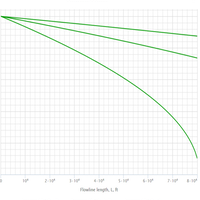Difference between revisions of "SPipe"
From wiki.pengtools.com
| Line 2: | Line 2: | ||
== Brief == | == Brief == | ||
| − | sPipe is a simple surface pipeline sizing tool. It calculates pressure drop in oil, gas or water flowlines. Featuring multiphase flow correlations and sensitivity analysis. | + | [[sPipe]] is a simple surface pipeline sizing tool. It calculates pressure drop in oil, gas or water flowlines. Featuring multiphase flow correlations and sensitivity analysis. |
== Typical applications include == | == Typical applications include == | ||
Revision as of 13:38, 7 April 2017
Brief
sPipe is a simple surface pipeline sizing tool. It calculates pressure drop in oil, gas or water flowlines. Featuring multiphase flow correlations and sensitivity analysis.
Typical applications include
- Estimation of flowrate with defined pressures at inlet and outlet
- Estimation of inlet and outlet pressures for achieving target flowrate
- Selection of pipeline size
- Estimation of mixture velocity
Main features
- Plot of pressure profile vs length
- Result table with pressure, velocity and hold-up
- Sensitivity analysis
- Using prepared PVT models
- Account for elevation
Interface features
- Save and share references to saved models with colleagues
- Last saved model on current computer and browser is automatically opened
- Choose between Metric units and US oilfield units.
- Save as image and print plot by means of chart context menu (button at the upper-right corner of chart)
- Download report in pdf format containing input parameters, calculated values and plot
- Select and copy results to Excel or other application
References
| Type of problem | Correlation | Reference |
|---|---|---|
| Oil and water flow | Beggs and Brill | Brill, J.P. and Mukherjee, H. 1999. Multiphase Flow in Wells. SPE Monograph, Vol. 17, Society of Petroleum Engineers, Richardson, TX. |
| Dry gas flow | Adopted multi-step Cullender and Smith | Cullender, M.H. and Smith, R.V. 1956. Practical Solution of Gas-Flow Equations for Wells and Pipelines with Large Temperature Gradients. Trans., AIME 207: 281. |

